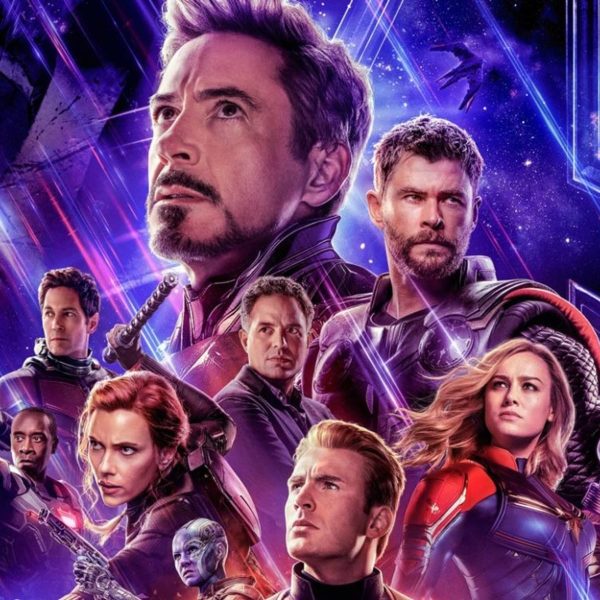Holidays have turned into a series of high expectations

More stories from Jordan Helmbrecht
Since I was young, I have always loved the holidays. No matter what celebration it was—Valentine’s Day, Christmas, St. Patrick’s Day, Easter, Halloween, Thanksgiving, birthdays—I loved getting in the holiday spirit and celebrating.
Also when I was young, I only really saw what rested on the surface of each holiday. I didn’t know my mom was up till the late hours of the night making sure everything for Christmas was perfect; I didn’t know my dad spent hours picking out the perfect Valentine’s Day card for me and chocolates; I didn’t know how expensive my “perfect” Halloween costume was. What I did know was that it was all coming—I expected it.
And that idea has become a distinct property of holidays. While in the past, they were more full of natural gifts—spending time with your family, showing those you care about that you love them, giving emotional rather than material gifts—today, they have fallen into the heavy category of materialism that has made its place prominent in society.
Holidays today have simply been turned into a series of high expectations and an emphasis on consumerism.
Valentine’s Day. A day full of love, a day full of candy, a day full of flowers, and don’t forget—a day full of high expectations.
The holiday has existed for hundreds of years now. It started out as a day dedicated to showing your love to those around you. Defined by the colors red and pink, Valentine’s Day was meant to represent the love that exists in the world. It was meant to celebrate romantic love, friendship, and admiration.
In earlier years, the holiday consisted of simple acts of showing affection. There wasn’t loads of money involved, there wasn’t a need for a grand expensive act—simple acts were enough. A card written with meaning, a bouquet of flowers, a small box of chocolates, or a dinner shared together. The simple acts were a strong representation of the love people had for each other.
Now, however, all of these simple acts are only the expected parts of Valentine’s Day. Women expect flowers from their significant others, children expect chocolate from their parents, people expect nice dinners and cards. There is no joyous surprise in receiving any of this—it is all expected.
Now, some people spend hundreds, even thousands of dollars on grand Valentine’s Day gestures. An expensive necklace, a luxurious trip, costly clothes, a room full of roses, an overpriced concert, a lavish bracelet. Basically, anything that costs a lot of money goes because now, rather than showing love through our actions, the holiday has turned into showing our love through money, at least for the majority of people.
While the simple acts of Valentine’s Day do still exist, the majority of the society is obsessed with going above and beyond—setting competitively high expectations.
And personally, I think all of the over-the-top stuff has ruined the true meaning of the holiday meant to show genuine love and appreciation. Love is an emotion, not a certain amount of money.
Take Christmas, if you choose to celebrate the holiday. The holiday is meant to bring families and friends together through the holiday season. The holiday is meant to bring joy and happiness, and to celebrate the birth of Jesus. The holiday is meant to bring us all together in the season of festivities.
The true purposes of each holiday have been obscured by our societies materialism and want for more and better things—we have turned holidays into a series of high expectations.
However, as materialism and consumerism advanced into society, they also advanced into the celebration of Christmas. While the day used to be celebrated with a few meaningful gifts, it has now turned into a day of expected presents—and a lot of them.
Once again, the true meaning of Christmas, and the true appreciation which comes with the holiday, has been obscured by a measure of high expectations. We want things and expect real, tangible items rather than gifts of emotion, which is what the holiday was initially focused on.
Thanksgiving turned into another holiday masked by consumerism and a series of high expectations. The main focus of the holiday, at least for a majority of people, has been manipulated into the focus of Black Friday. People are more anxious to shop than to just sit back and enjoy the time they have with those they are grateful for.
The celebration was meant to bring together friends and family under the same net of appreciation and gratefulness. Now, the time that is meant for gratitude is spent trying to make the most extravagant feast and then hurrying to file out all of the Black Friday deals and start shopping. The meaning of Thanksgiving is once again overthrown by the need to buy, our societies prominent consumerism, and the expectations the holiday now comes hand-in-hand with.
The ways in which holidays have become identified by the high expectations they are accompanied by are practically infinite. The true purposes of each holiday have been obscured by our society’s materialism and want for more and better things—we have turned holidays into a series of high expectations.
As a kid, I loved all the gifts and treats that came with each holiday, and I still do now. But, I also am old enough to realize that this isn’t what these holidays are truly about.
And, I’ve observed enough to realize that high expectations, consumerism, and materialism have drastically changed these celebrations that take place every year to turn into days that revolve heavily around our “wants” and “needs.”

Jordan Helmbrecht is a senior and is entering her second year on staff for The Central Trend. She plays soccer for Midwest United FC and FHC. Although...


























































































